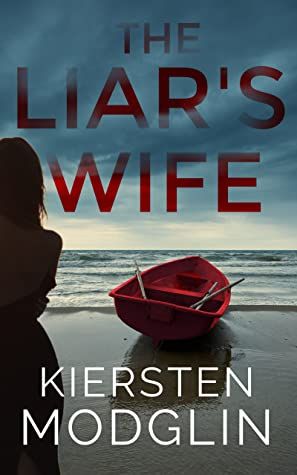
Published by: Kiersten Modglin
Publication Date: February 18, 2020
ASIN: B083G5XZ1S
Pages: 222
Review Copy from: Personal purchase
Edition: Kindle
My Rating: 5
Synopsis (via GR)
Yes.
The word that brought me such great joy and, eventually, such heartbreak.
When Mark asked me out for the first time, I didn’t have to think twice.
I said, “Yes.”
When he asked me to marry him just a year later, the answer came as easily as the breath that followed it.
“Yes.”
When he asked me to keep his secret, my response came too quickly.
“Yes.”
Now, in front of a judge and jury, I’ll be asked the question I never anticipated.
“Did you know who the killer is?”
The answer is second nature by now.
“Yes.”
My Thoughts
Have you read a Kiersten Modglin book? If not, you are missing out on a goosebump read!
My review is going to be short and sweet because I don’t want to give away anything!!!!
The book begins with 2 people, Hannah and Mark are sitting in jail being interrogated by their attorney for a murder. I’m hooked already.
The story alternates between Him and Her, and now and then. Pulls me in deeper as to their personality dynamics.
Hannah and Mark have many secrets, lies, and betrayals during their relationship. Once they marry, their situation deteriorates and worsens. Now I’m very invested because I don’t know who I should believe, Hannah or Mark.
And then comes the explosion. Wait, what did I just read?!?! At this time I have to reread what just happened!!!
Kiersten Modglin has done it again!!! She knows how to write a psychological thriller!!! She has the ability to always make the reader pause and grasp what just happened and putting it all in perspective.
Another Kiersten Modglin book that blew me away!!! Wow! Just WOW!!! My goal is to read her entire library of thrillers!! Her books are hard to put down!!!!! See my reviews for 2 of her other books: Just Married and
The Mother-In-Law.
Another book blogger recommended her to me and so glad she did. So I am now going to emphasize that you need to check out her books. I’m sure she will grab you hook, line and sinker!!!!!
Purchase Links: Amazon 🔗 | Goodreads 🔗
REVIEW DISCLAIMER




















































































































